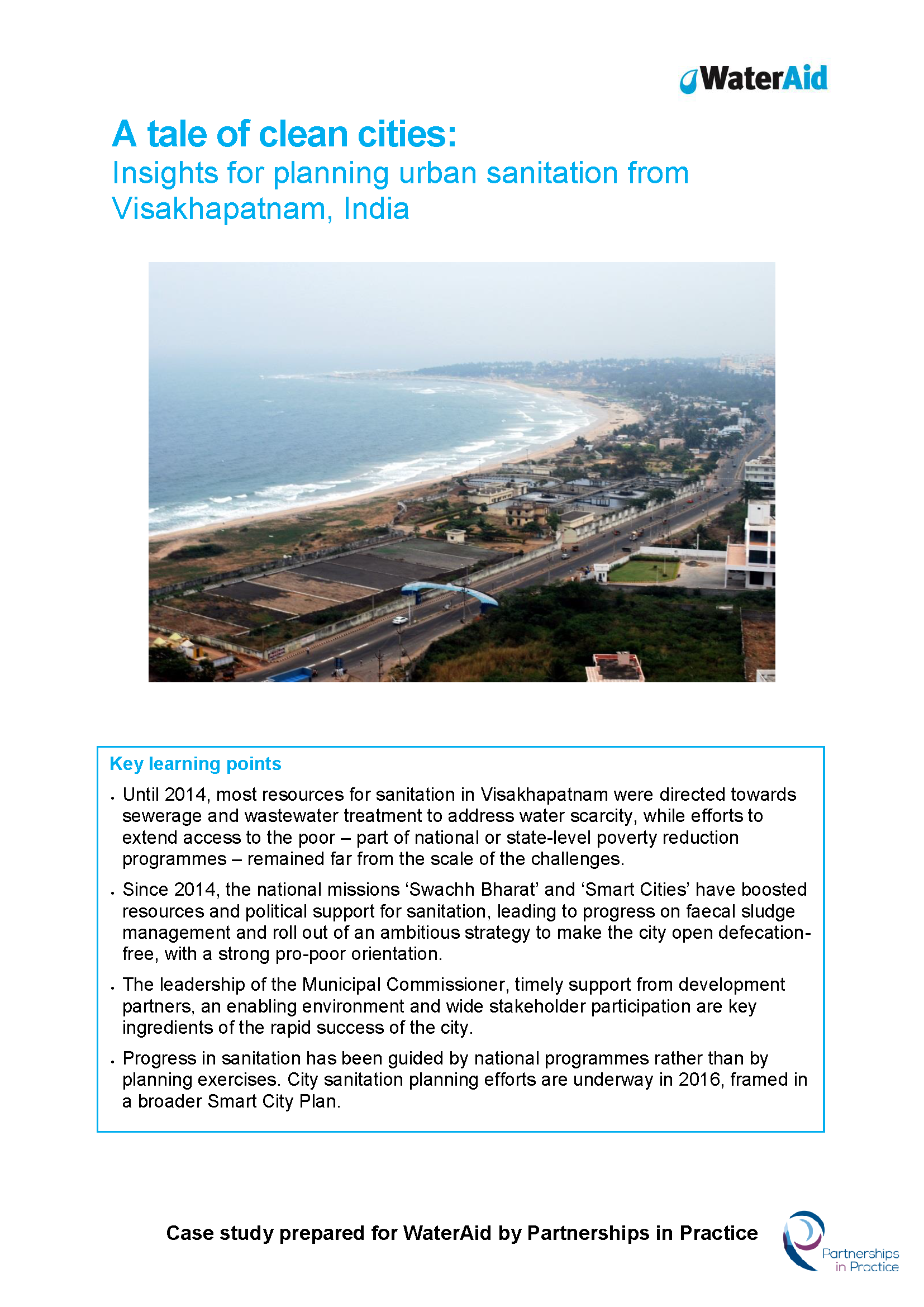 TITLE: A tale of clean cities: Insights for planning urban sanitation from Visakhapatnam, India
TITLE: A tale of clean cities: Insights for planning urban sanitation from Visakhapatnam, India
AUTHOR: Tiberghien J-E
YEAR: 2016
ABSTRACT: Visakhapatnam has a population of 2.1 million and is the financial capital of Andhra Pradesh. 44 per cent of households in the city are in the city's 793 slums, the highest rate in India.
A large proportion of the population relies on on-site facilities, and does not receive adequate faecal sludge management services. National poverty reduction programmes including a sanitation component helped to meet some of the sanitation need in the rapidly expanding slums, but 7 per cent of the population still resort to open defecation.
With the launch of the national Swachh Bharat Mission, sanitation has been considerably raised in the political agenda, an ambitious strategy to eliminate open defecation was developed and is being rolled out, and increased attention is being paid to faecal sludge management. Beyond the SBM, the leadership of the Municipal Commissioner has been crucial in this process. Timely donor-supported technical assistance has increased the city's capacity to capitalise on this opportunity.
This has resulted in Vizag being named the third cleanest city in India and one of the most improved, and the city is now preparing a city-wide sanitation plan as part of their Smart City Plan.